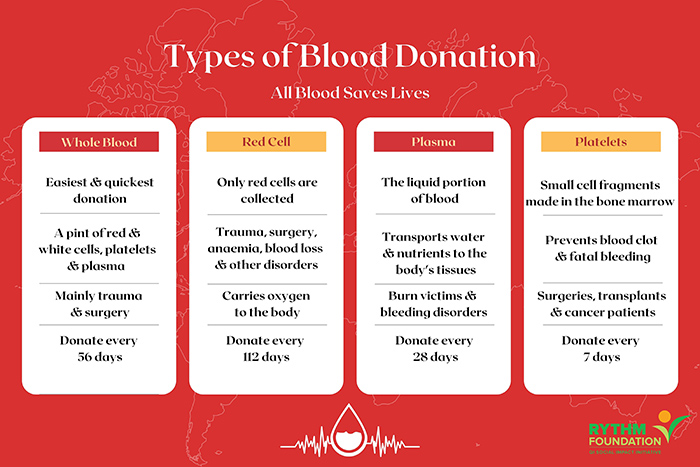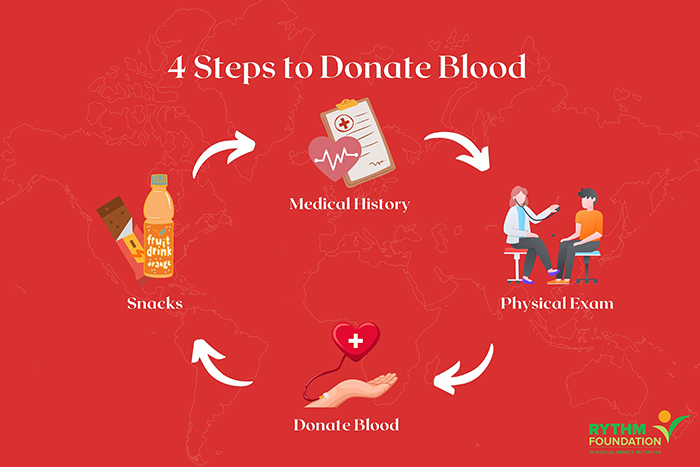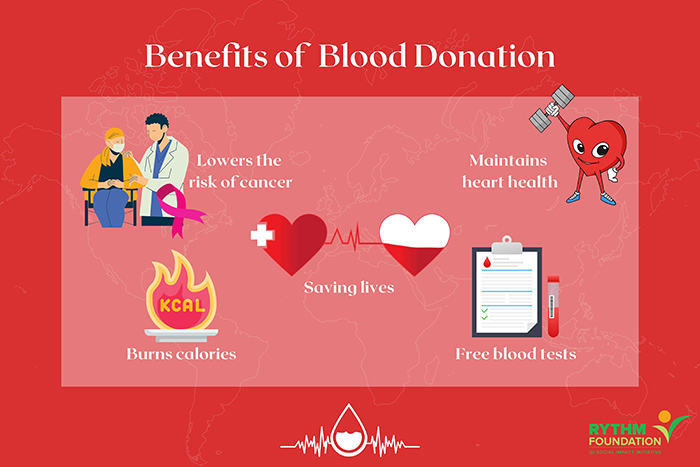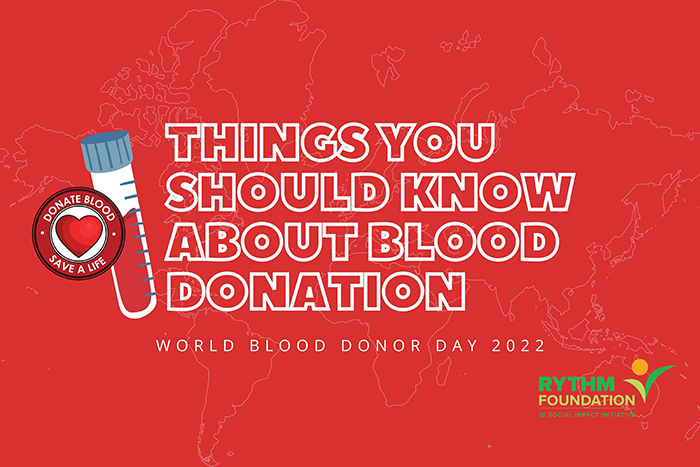To raise global awareness of the need for more blood donations and show gratitude towards those whose voluntary contributions have been critical to keeping the heart of the world beating, we commemorate World Blood Donor Day today, 14 June.
Every two seconds, someone in the world needs blood. Health systems worldwide are constantly in need of safe and adequate blood supplies to treat patients, yet there aren’t enough regular blood donors around the world.
Donating blood costs nothing, but for someone out there, it could mean everything. So, here are some things everyone needs to know about blood donation:
1. Your blood can be used in more ways than you expect to help someone in need
While most people assume that blood is only helpful in surgeries and trauma, many other patients require blood, such as cancer patients, burn victims, transplant patients and those with blood loss, anaemia, and other blood disorders.
2. Every drop of blood that you donate can help save a life in some way
Human blood has four main components: red blood cells, white blood cells, platelets and plasma, and each element is essential to the human body’s function. Check out the infographic below to learn more about the four types of blood donation – whole blood donation, red cell donation, plasma donation, and platelet donation.

3. Your blood forms new cells to replace what you donate
Each pint donated (about 470ml) is about 8% to 13% of the average adult’s total blood volume. However, one of the many wonders of the human body is its ability to restore donated blood. The human body can replace this volume within 24 to 48 hours and replenishes the red blood cells and iron lost in 10 to 12 weeks.
4. There is never enough blood
About one in seven people entering a hospital need blood, and the short lifespan of blood collected also means a constant blood donation supply is necessary. Red blood cells have a shelf life of up to 42 days, while platelets have a shorter shelf life of five to seven days.
5. Donating blood is as easy as 4 simple steps

6. You could be a speciality donor
Specialty donors are donors whose blood can be used for specific recipients and are usually in high demand. People with an AB-negative blood type have the rarest blood type in the world, and these donors are unique because their plasma is transfusable into patients of any blood type.
You are also a speciality donor if your blood type is O-negative, a universal red-cell donor for people with any blood type. Blood donors with this type a relatively rare and provide the most in-demand blood type used in emergencies and situations where a patient’s blood type is unknown.
7. It’s not just the patients who benefit from blood donation. There are perks for donors too
While blood donation won’t become a weight loss fad anytime soon, studies have found that donors could burn up to 650 calories per pint of blood donated. Studies have also shown various other health benefits from donating blood, such as maintaining heart health and lowering cancer risk.
In addition, donors get free blood screenings as all donated blood goes through rigorous testing to ensure its safety. In some countries like Malaysia, regular blood donors also benefit from free health screenings, Hepatitis B vaccine shots, and even outpatient treatment.
Of course, no perk is more important than the possibility of helping to save a life, and in case you didn’t know, one pint of blood can save up to three lives.
8. There is no substitute for human blood
Despite the progress of the modern world that has paved the way for medical marvels like artificial hearts and other synthetic organs, nothing has come close to replacing human blood. If that doesn’t tell you how crucial human blood is, we’re not sure what will!
Donating blood is an act of solidarity. So, let’s join the effort and help save as many lives as possible.






